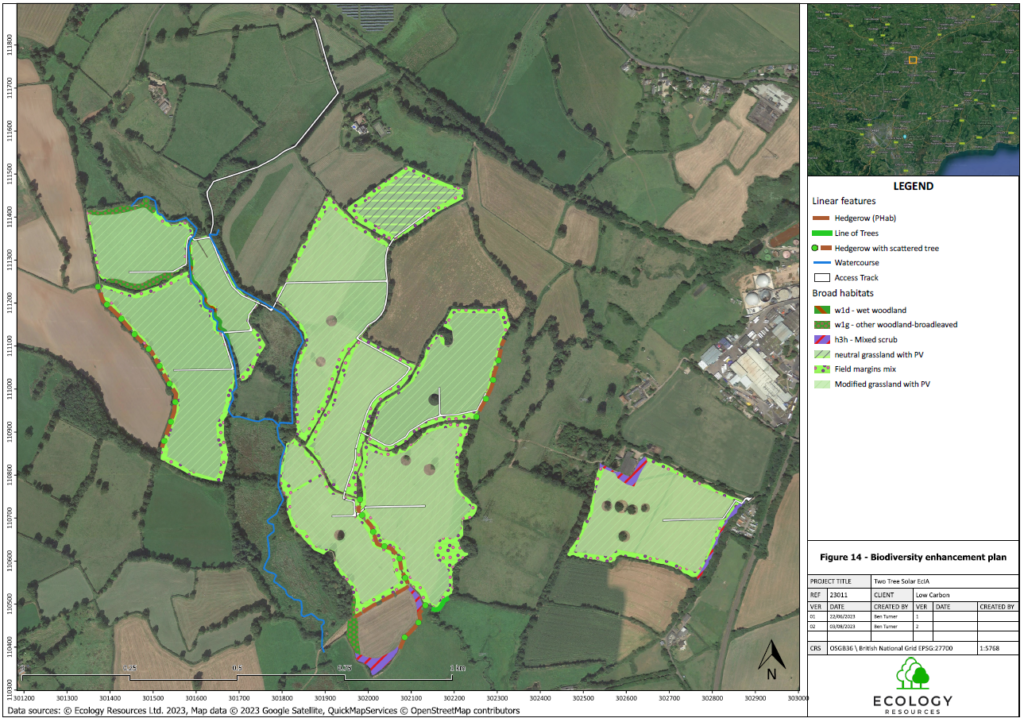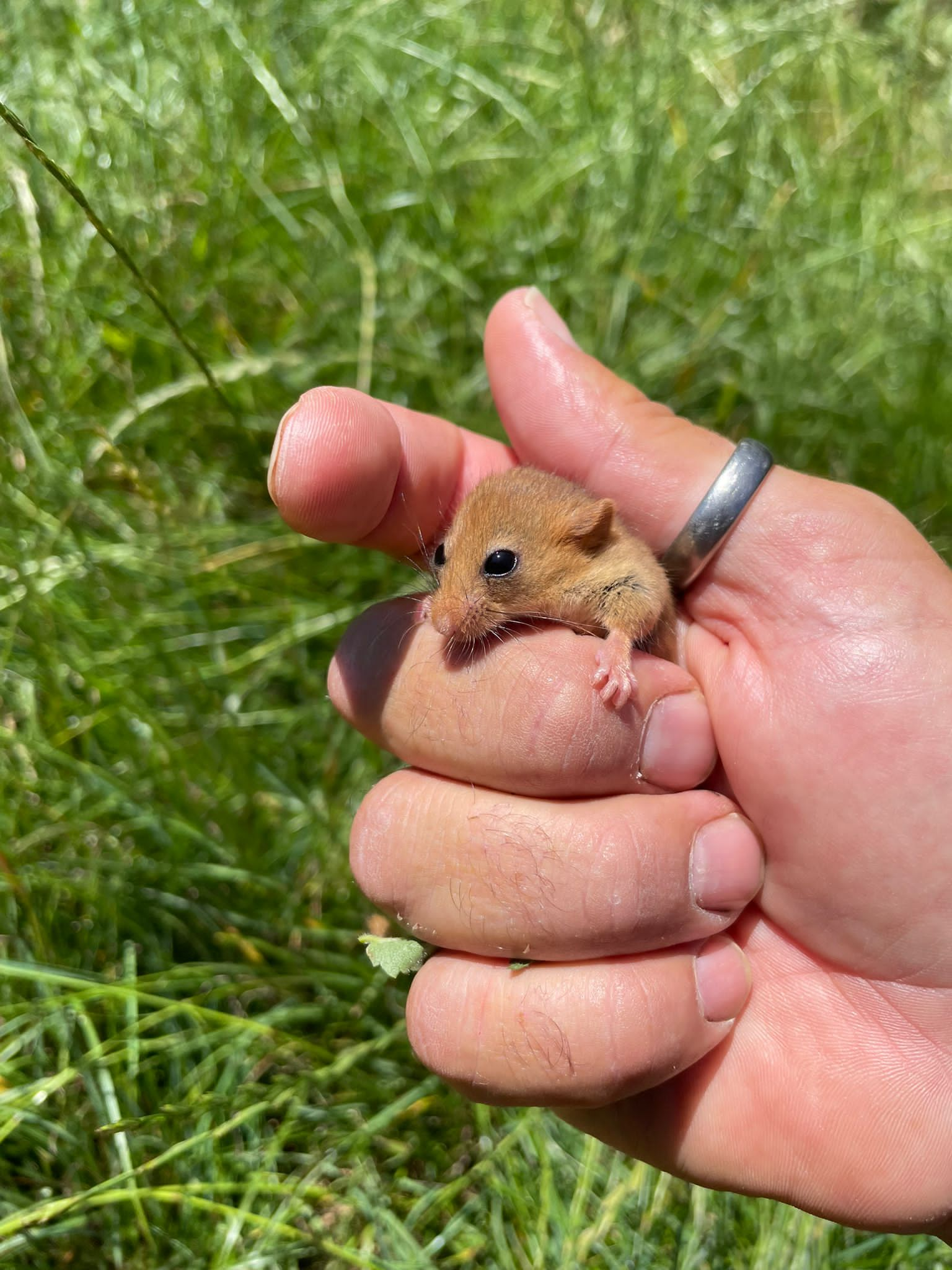Biodiversity Net Gain and renewable energy in Mid Devon…
Two Tree Solar Farm is a renewable energy development near Willand, Mid Devon which, when complete is anticipated to generate 49.9 MW of electricity, enough to supply over 16,000 homes. Ecology Resources has been working in partnership with AECOM and Low Carbon to deliver an Ecological Impact Assessment at the site and implement a Biodiversity Net Gain (BNG) enhancement plan.
In 2022 and 2023 a series of ecological surveys were conducted to inform the impact assessment. The site was found to be of local importance for hazel dormice, badgers, bats as well as some bird species (kestrel and reed bunting). The site was dominated by arable land used for cereal crops which. Arable land can support wildlife when managed well, but the site supported few species associated with healthy farmland (e.g. skylark, yellowhammer). Habitat surveys showed that grassland on site was mostly of low-distinctiveness and often in poor condition. Regardless, gone unmitigated, the development of a solar farm would have resulted in the loss of onsite habitats including native species-rich hedgerows.

Our habitat enhancement proposal reveals that as much as 106% biodiversity net gain to broad habitats, 9% to hedgerows and 13% to rivers is thought to be achievable site through implementation of a post development habitat management plan. The biodiversity enhancement strategy allows for the conversion of previously arable land to grassland and for a carefully selected seed mix will be sown in field margins. Areas of the site not used for solar panel installation will see additional planting of hedgerow, scrub and woodland, including areas of wet woodland (a UKBAP priority species). It is also anticipated that the removal of arable farming on the site will allow streams running through the site to recover and improve. These habitat enhancements allow for increased floristic diversity which in turn will support more diverse insect and bird populations and continue to support healthy populations of dormice, badgers, and bats.

